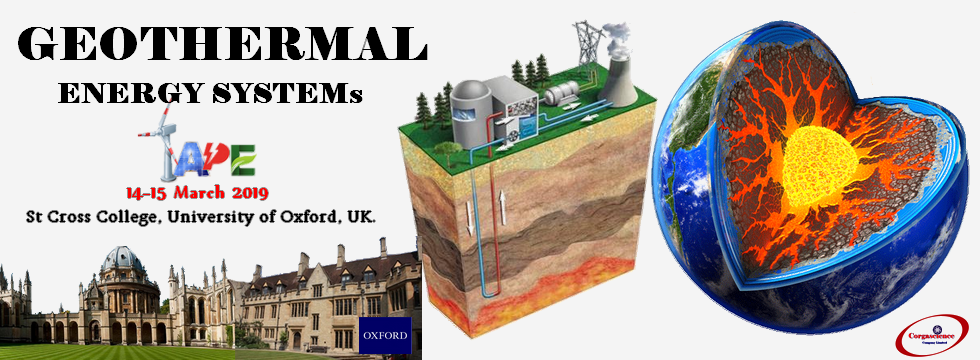

Dr. Antonio Sanfilippo
Chief Scientist, Qatar Environment & Energy Research Institute
Hamad Bin Khalifa University, Qatar Foundation
P.O. Box: 34110 Doha, Qatar
Talk Title
Multi-Criteria Decision Analysis in Residential PV Adoption
Talk Abstract
Modeling the diffusion of residential solar photovoltaic (PV) systems in their technical, social, political and economic context is crucial to help policymakers assess which policies may best support adoption. The characterization of the decision making process leading to a user’s decision to be a residential PV adopter or not is difficult because of potentially conflicting objectives (cost vs. environmental concerns), the diversity of the factors involved (cost of PV, electricity tariff, cost of fossil fuel used in conventional electricity generation, subsidies, carbon tax, innovation diffusion) and the uncertainty associated with the change of the relevant factors through time. Multi-Criteria Decision Analysis (MCDA), an approach which defines a class of Operations Research models addressing complex problems, provides a solution to complex decision making that has been gaining momentum in the energy field. MCDA has been successfully applied to renewable energy analysis in endeavors that include evaluating the feasibility of different renewable energy options, assessing different alternative energies or energy technologies (e.g. electrical vs. thermal), and considering alternative technologies from an environmental perspective. In this talk, we will explore the use of MCDA for the development of a decision-making framework in residential solar PV adoption. After a description of the problem focus and the identification of the relevant factors which determine PV adoption, we will show how diverse techniques including agent-based modeling, and constrained scenario generation and optimization can be used to generate an initial dataset which can then be used to train a mathematical decision-support model (e.g. Bayesian network, decision tree, or a Dempster- Shafer belief network). In pursuing this objective, our focus will be on assessing the relative contribution of engineering, economic, policy and environmental factors to residential PV adoption to help policymakers and other stakeholders formulate optimal conditions to promote the diffusion of distributed renewable energy generation under diverse assumptions/circumstances.
Short Biography
Dr. Antonio Sanfilippo is Chief Scientist at the Qatar Environment & Energy Research Institute (QEERI), where he leads the Smart Grid Portfolio – a research initiative focused on advanced power systems, solar resource mapping and forecasting, and demand-side management – and a grant on “PV Adoption in the GCC” funded by the Qatar National Research Fund. From 2003 to 2014, Dr. Sanfilippo was Chief Scientist in the Computational and Statistical Analytics Division at the Pacific Northwest National Laboratory (PNNL), US Department of Energy (DOE). While at PNNL, he led research projects for the Department of Homeland Security (DHS), the National Institutes of Health (NIH), DOE, and the National Science Foundation (NSF). In 2004-2005, he headed a consortium of five national laboratories that established the Motivation and Intent thrust area at DHS, and led the PNNL team in this effort through 2009. From 2007 through 2011, he directed a four-year Laboratory Initiative at PNNL on predictive analytics focused on security, energy and environment applications. In 2012, he completed a five-year NIH grant on gene network prediction in stroke, and a four-year NSF grant on the science of science and innovation policy. From Sept 2011 through January 2014, he led an NIH grant on modeling the scientific workforce. In 2013, he was awarded a DHS grant on modeling cognitive response to mobile emergency alerts. Prior to joining PNNL, Dr. Sanfilippo held positions as director of research strategy and planning at Textology Inc., director of text mining at SRA International, and director of advanced development at LingoMotors Inc., providing strategic vision, competitive intelligence and leading the development of new products. From 1998 to 2000, he served as a senior consultant for the Information Society Directorate at the European Commission, overseeing international research consortia and organizing promotion, consultation and dissemination events. While at SHARP Laboratories of Europe, from 1992 to 1998, he supervised research and development activities in the Information Technology group, led the development of new products in the area of machine translation and information management, and was principal investigator on several projects funded by the European Union. Prior to joining SHARP, Dr. Sanfilippo was a research associate at the Centre for Cognitive Science (Edinburgh, UK) and the Computer Laboratory (Cambridge, UK), doing applied research in computational linguistics. Dr. Sanfilippo holds a Laurea degree in foreign modern languages awarded cum laude from the University of Palermo (Italy), M.A. and M. Phil. degrees in anthropological linguistics from Columbia University (USA), and a Ph.D. in cognitive science from the University of Edinburgh (UK). He is the recipient of the 2008 Laboratory Director’s Award for Exceptional Scientific Achievement at PNNL.
Talk Keywords
Solar energy adoption, renewable energy policy, renewable energy economics, agent-based modeling, Multi-Criteria Decision Analysis.
Target Audience
Students, Post doctoral, Industry, Doctors and professors
Speaker-intro video
TBA






